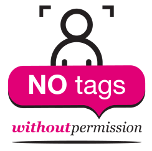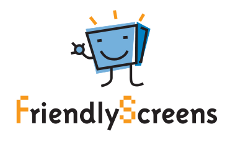New technologies have brought to our lives new tools and services, and with those, new customs and lifestyles. Every society requires a relatively long transition period to adapt to new social paradigms. Unfortunately, these periods have been reduced from millennia to centuries, from centuries to decades, and from decades to a few years. For the first time in history we are seeing our society trying to adapt in just a few months to radical changes in the way we communicate, express and act.
Social networks play a crucial role in this change as they are the ones offering the services that bring together all the old and new tools needed to be part of this new society: a society that exposes us non-stop in all kinds of events and circumstances to the eyes of our ever-widening circle of social pressure. For the first time, there is a unique tool that is able to help us meet most of the needs we have as human beings. Depending solely on it makes us increasingly more vulnerable.
Facebook is about to become the only tool we will need to satisfy all the desires that Maslow proposed in his pyramid of needs, without having to resort to any other tool. For instance, our physiological needs are partially met because, among other things, Facebook dictates when we sleep, party, eat, and when and with whom we practice sex.
To meet the safety needs, Facebook also becomes a double-edged sword: it can help us find a job, although it is very likely that we will lose it as soon as the boss sees those embarrassing pictures that someone took, and tagged without permission, in the last new year’s party. Similarly, the social network helps us improve our health by recommending good nutritional products and by getting us in touch with experts who tell us how to avoid that silly cold becoming pneumonia. Alas, it also collects all traces that we leave on our day to day life inferring, based on data mining, diseases that we have suffered and even those that we will suffer in the future.
Our needs for love and belonging not only can be achieved through Facebook, but it also is becoming more difficult to get them through other means. Nowadays, not participating in social networks condemns us to ostracism, automatically making us persona non grata. The most serious issue lies in the social pressure that is generated around social networks. It requires us to follow all these new social rules required to meet our needs for recognition and esteem. For fear of being rejected and treated as outcasts, we seek respect, success and others’ trust based on some rules without considering the consequences and dangers of following them. This prevents us to seek higher desires, such as those related to morality, spontaneity or lack of prejudice, thus making the pyramid of Maslow we have built using these “innocent” Facebook tools collapse like a house of cards.
Social networks represent a change so radical that we don’t know how to control them. Livingour daily lives subject to them gives us a state of excitement, anxiety and joy that prevents us to measure our actions, words and actions. We are immersed in a loop of infinite possibilities and a constant need to satisfy our curiosity, ego, or boredom, making us, without realizing it, both victims and executioners.
It’s hard to understand how an innocent little gesture, such as the act of tagging a person on a photo, can cause so many problems. People want to be tagged; the success of Facebook cannot be understood without tags. David Kirkpatrick mentions in his book The Facebook Effect how Facebook grew exponentially thanks to its photo service. It increased its user base when tagging was introduced and especially when it decided to integrate image recognition to suggest tags.
Users don’t seem to mind that their image, including the tag, spreads like a wildfire. The tags are distributed exponentially and with them our private lives. Legend has it that the inventor of chess tried to deceive the king asking as a reward for his great contribution a grain for the first square on the board, two for second, four for the third, and so on, doubling the previous amount for each box. When the king learned how many grains were needed, he ordered to kill the inventor. If Facebook users knew how their privacy expands, things would be a bit different.
Sadly, the only problem users of social networks seem to have is whether they look good on the pictures or if they have been immortalized from their best shot. Gone are the daguerreotypes of the mid-nineteenth century where people prepared for almost a lifetime to take that one picture that was to immortalize their existence. Some users even get angry when they find out they haven’t been tagged on a picture they are in. It’s not only worrisome that this social pressure forces, especially the most vulnerable groups such as minors, that one has to be able to look good anytime and at any circumstance. We are also forced to improve a fictitious social popularity and image that wastes our productivity; time that could have been used for other less frivolous uses.
We all become upset when someone gives our phone number to a stranger, but we do not seem to mind that our Facebook profile, a private data that should be kept with zeal, becomes broadcast in the walls of friends, and of friends of friends, and of friends of friends of friends. Lost the battle of awareness and sensitivity, it is time to regulate what users can and can’t do on social networks, so that no one ends up making somebody else’s life miserable by pure forgetfulness, ignorance or simple boredom.


There is a very good comparison between Facebook and Maslow’s Hierarchy on http://www.youtube.com/watch?v=WASQR9DKpUo